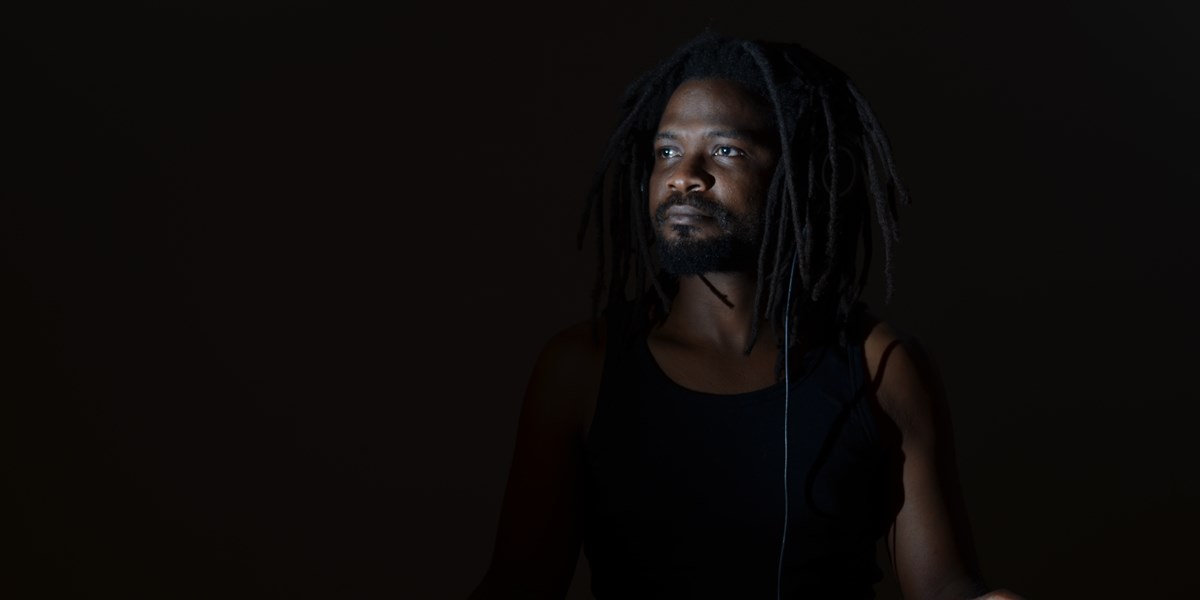Tuesday, April 12, 2022
“Drums are spiritual – however they are used” | Alai K interview
Prescribing some dance floor therapy with the Kenyan-born, Berlin-based ‘musical witchdoctor’

Alai K’s music is really a road map of his life, weaving together the musical influences that have surrounded him over the years: the spiritual music of the Bajuni, the traditional rhythms that surrounded him growing up around Mombasa in Kenya, the Swahili hip-hop scene, 21st-century dance floor Afro-house, electronica and techno of Kenya and Uganda and, these days, Berlin’s underground club scene. They all add up to the serious sonic and dance floor contender that is his new album Kila Mara, released on the always fascinating UK label, On the Corner Records.
There was always music around him in Kenya. He tells me, “if you’re happy, if you’re sad, if someone is dead or there is a wedding… it’s all music bringing people together, removing stress.” When he was still in the womb, he would have heard the trance and spiritual music that his father played at weddings, funerals and other ceremonies, which his mother also attended. “I found that I was just into music, I didn’t look for it anywhere, I just found it inside me. And I said, OK, I want to make music. So, I was singing all the time when I was young… a different kind of music.” His mother told him of his great-grandmother, a Malawian singer and composer, and of his father, a professional drummer and leader of musicians at ceremonies, such as the week-long forest celebration of Alai’s birth, his first-born son. “My father and my great-grandmother passed it to me in a spiritual way, and I went to find that music and the people who played it.”
Nevertheless, it was hip-hop that provided his first musical opportunity, in 1995, when he became a founding member and rapper with influential radical Kenyan act Ukoo Flani (A Certain Clan). Inspired by Staten Island’s Wu-Tang Clan, their flow transformed Dandora into the capital of Kenyan hip-hop, rhyming out the realities of existence in that landfill site/slum suburb of Nairobi. Over a decade, they morphed into a super group, Ukoo Flani Mau Mau, 25 artists strong, nurturing talent from Nairobi to Mombasa.
But Alai wanted to go beyond rapping, to sing and to create music. So, over the next decade, he developed his own style with electronics, vocals and percussion, which generated his self-released Disco Vumbi series (later released by Byrd Out) and his Boutiq Electroniq project, with the ubiquitous Nyege Nyege Tapes imprint in Kampala. Meanwhile, he toured and worked extensively with Nairobi’s Santuri Electronic Music Academy, Alliance Française and the Goethe-Institut.
It was the latter that brought him to Berlin, where he has been based for the last three years. “I love techno,” he explains, “and believe that African drums influenced the percussion and programming… In Africa people play drums and dance for hours, which is the same experience as Western electronic music. It’s magic how the repetition can drive dancers into a trance-like state… I want to express the feeling of techno, but bring something new, from somewhere else. Drums are spiritual – however they’re used.”
Live shows and the album feature two percussionists: Charles Obuya (aka Chalo-T) and Izo Anyanga, who play the bigger drums of Kenya (ohangla and bumbumbu), and taarab percussion from the Swahili coast. Together they cook up a rhythmic storm igniting Alai K’s stunning electronics and vocals. Kila Mara undoubtedly packs a solid rootsy dance floor punch throughout, highlights including the ecstatic electronica of ‘Cheza Imba Ruka’ and the trance immersion of ‘Mudzini’.
Read the review of Kila Mara in the Songlines Reviews Database
This feature originally appeared in the April 2022 issue of Songlines magazine. Never miss an issue – subscribe today

